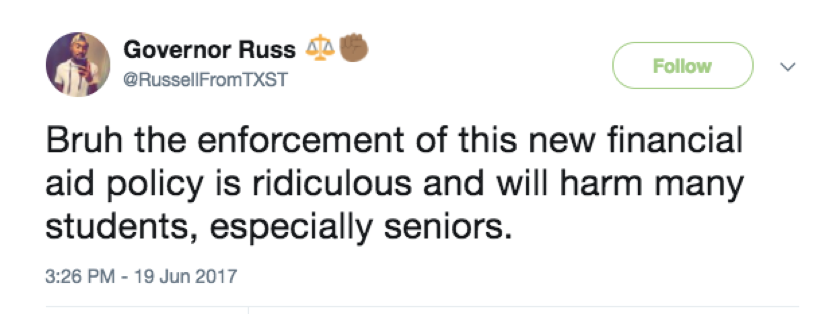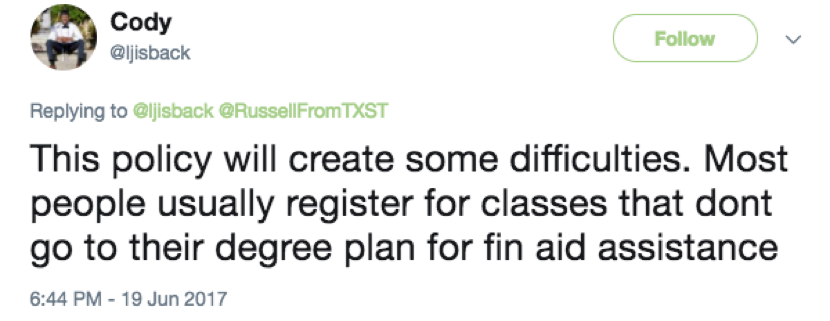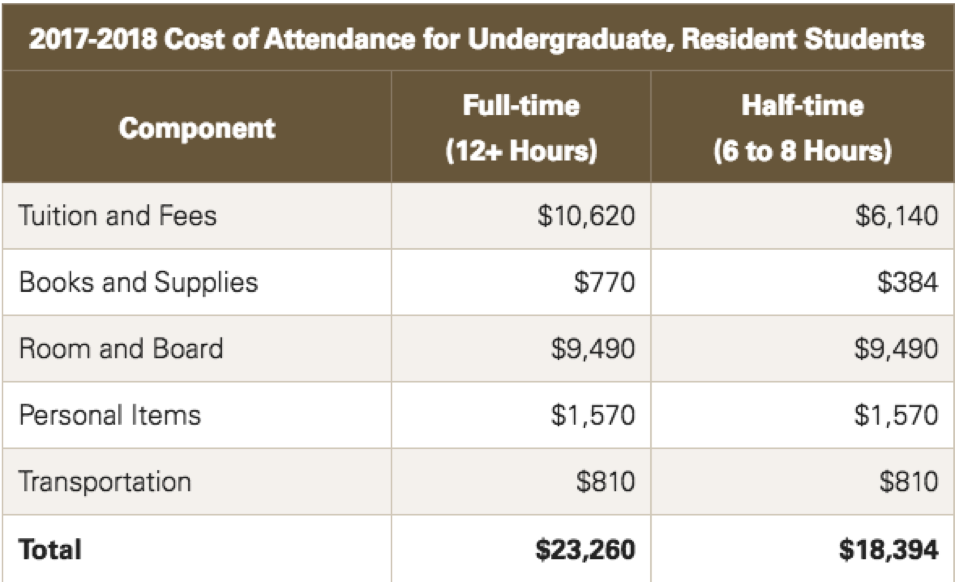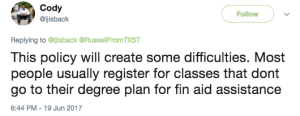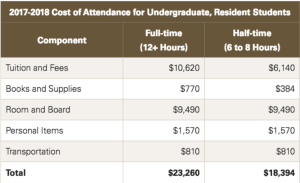The federal government policy requires student’s aid eligibility only to be based on courses counting toward the completion of their degree, according to the Financial Aid and Scholarships Department.
To be considered a full-time student, for financial aid purposes, there is a 12 credit hour requirement as an undergraduate, or nine credit hours as a graduate, counting toward their degree plan.
Christopher Murr, director of Financial Aid and Scholarships, said he encourages students to familiarize themselves with their degree audit.
“The federal government has always had the expectation that taxpayer funds are only paying for those courses that count toward the student’s degree that’s not new,” Murr said. “However, due to our enhancements in our system, we are more able to comply with those rules.”
Murr said the cause of this enforcement stems from the degree audit and finical aid systems ability to flag the system.
“That interconnectivity being there, we can’t ignore it,” Murr said. “We have to make sure we complement the federal policy, now that we have the technology to do so.”
Students were notified via email on June 16. However, all students are recommended to reference their degree audit and course catalog as to what courses count toward their degree.
Students took to Twitter to display their confusion and their disagreement with the enforcement of this policy.
Dede Gonzales, associate director of Financial Aid and Scholarships, ensures students could still receive financial aid even if they aren’t registered for 12 credit hours.
“You don’t have to have 12 hours to receive financial aid, most programs allow 6, but to get the maximum of financial aid, that’s where 12 hours comes in,” Gonzales said. “Even electives count toward the degree. It’s when the student is over 120 that they do not.”
Students can maximize their financial aid deepening on the number of hours they decide to take.
According to the Financial Aid and Scholarships website, students who take 12 hours don’t require as much tuition aid as a student who may take six hours. However, they might receive the same amount for services that aren’t tuition based such as room and board.
“It’s a student by student situation and the best way to figure out how this might affect you is by contacting the financial aid department,” Murr said.
Georgie Muñoz, marketing junior, emphasizes the importance of this policy enforcement.
“As I get closer to finishing my degree, this policy will definitely have to be in the forefront of my planning,” Munoz said. “Though in special circumstances, this policy may be a major bump in the road I think it’s a great push to those students who have been taking classes they don’t need due to poor planning.”
Programs that substitute certain courses are still able to receive financial aid, such as the Honors College.
The Financial Aid and Scholarships website has a list of frequently asked questions, links to advisers and contacts for case by case issues dealing with this policy.
Financial Aid recipients at risk if courses do not align with degree plan
July 11, 2017
Donate to The University Star
Your donation will support the student journalists of Texas State University. Your contribution will allow us to purchase equipment and cover our annual website hosting costs.











